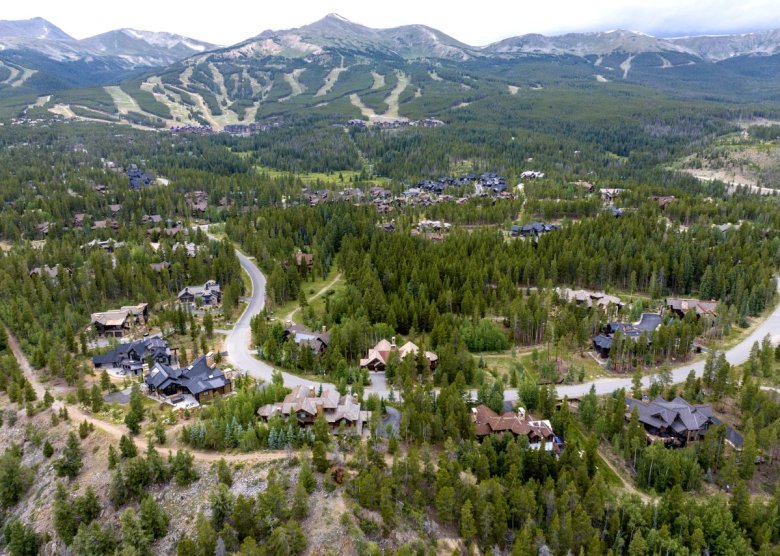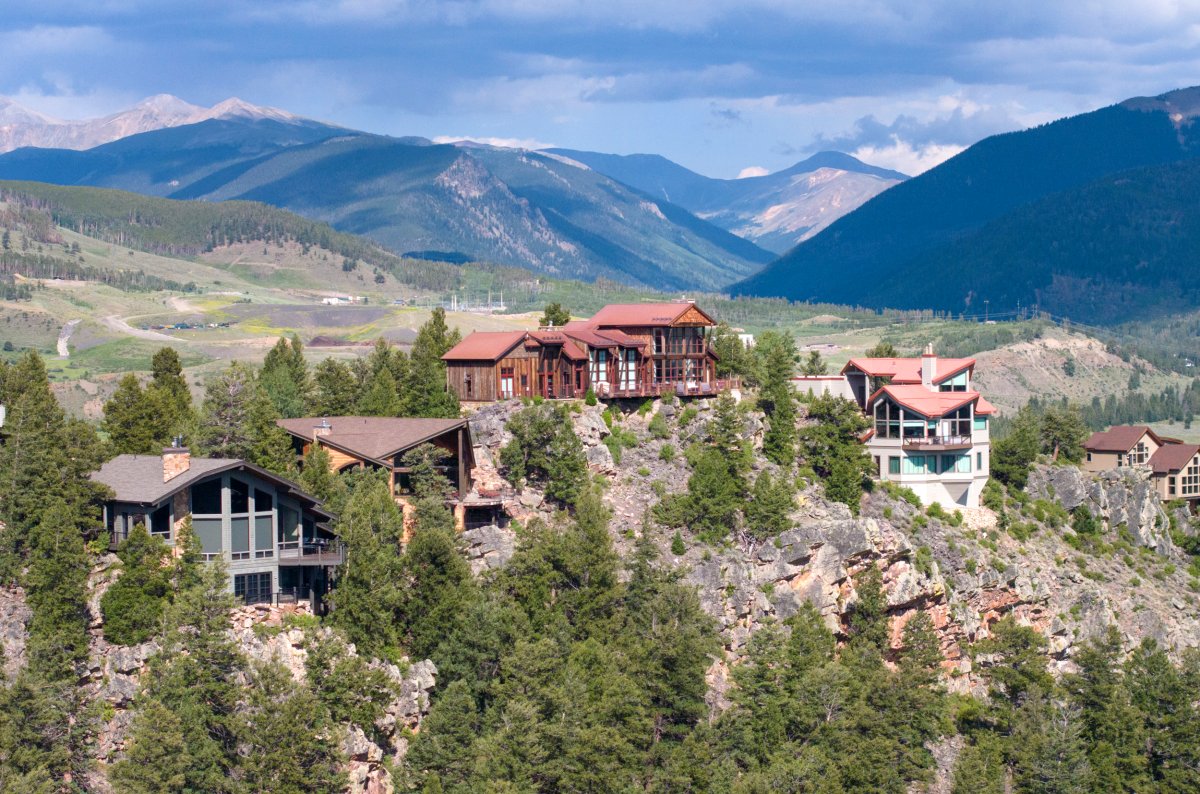A consortium of mountain towns will push Colorado lawmakers this year to pass legislation that would enable local governments to ask voters to tax homes that sit empty for most of the year.
There are no communities in Colorado that tax empty homes, but the growing challenge of building affordable housing for workers in mountain communities where real estate prices are soaring and as many as 40% of homes are unoccupied by full-time residents is fueling creative thinking around new revenue sources.
“We are not asking the legislature to make it so. This just clears some potential land mines for communities who might want to do this,” said Jonathan Godes, a councilman in Glenwood Springs and president of the Colorado Association of Ski Towns, or CAST, which is promoting the legislation for the coming session.
CAST is asking its 28 resort town members to support a bold legislative agenda this year. The group also is hoping for lawmakers to approve legislation that will enable local governments to approve fees on every real estate transaction.
(There are 12 Western Slopes communities that have real estate transfer taxes — from 1% to 3% on all property transactions — that were established before passage of the 1992 Taxpayer’s Bill of Rights, or TABOR, which prevents new taxes without voters approval. Those communities — Aspen, Avon, Breckenridge, Crested Butte, Frisco, Gypsum, Snowmass Village, Telluride, Vail and Winter Park — are collecting record revenues in recent years as home prices soar.)
CAST also plans to lobby for legislation that would smooth the process for asking voters to allow taxes on short-term rentals. In recent years, voters in at least 10 mountain towns have overwhelmingly approved taxes on vacation rentals.
Local governments are preparing for potential ballot initiatives in November that would slow property tax collections as real estate values climb. Proposition 50 would cap property tax increases at 4% a year. Initiative 108 would cut assessment rates for residential and commercial property.
If those measures pass, “counties are thinking about how we diversify our revenues so that we’re not solely reliant on property taxes,” Summit County Commissioner Tamara Pogue said. “The wild swings are hard on our residents and also hard on those of us who care about good governance and balanced budgets, both of which require an ability to forecast. That’s becoming increasingly difficult with the annual decreases in the assessment rate.”
CAST last year pushed for a real estate transfer fee but the legislation never advanced.
CAST is careful to call the real estate transfer revenue proposals a “fee” to sidestep the legal requirement for voter approval of new taxes under TABOR. While the tax on vacant homes would require voter approval, a real estate transfer fee could be passed by local elected officials.
“If the real estate transfer fees are fees, not taxes, used to defray the cost of a particular government service, such as affordable housing, then TABOR does not apply,” reads an April memo from the association’s attorneys at the Sherman & Howard law firm. That memo cites the 2018 decision by the Colorado Supreme Court that ruled Aspen’s 2011 ordinance charging 20 cents for paper bags at local stores was a fee to offset costs of waste reduction and not a tax that would require voter approval under TABOR.
There are other vacancy taxes under consideration outside the state as destinations grapple with a housing crisis in areas with large numbers of vacation homes.
In South Lake Tahoe, voters this fall will weigh a tax on homeowners whose properties are empty more than 182 days a year. The tax — $3,000 per unit for the first year of vacancy and $6,000 for subsequent years — would support building more housing for working locals. A recent survey showed 44% of the 16,276 homes in South Lake Tahoe are vacant, up from 33% in 2000. Proponents vying to get the vacancy tax on the fall ballot say it could be the city’s largest single revenue source.
In Hawaii, lawmakers have spent two years debating legislation that would impose a 3% tax on the assessed value of homes that are vacant for more than 180 days a year. The legislation is meant to deter real estate speculation in a state where investors from afar now spend as much as $5 billion a year on homes, up from $500 million in 2008.
☀️ READ MORE
Crested Butte voters in 2021 rejected a proposal for a $2,500-a-year empty home tax on homes that were vacant half the year.
Most vacancy tax proposals point to Vancouver in British Columbia, where a 3% annual tax rate based on the assessed value of empty homes that launched in 2017 has raised $142 million in revenue for affordable housing in the city while reducing the number of vacant homes in the city by 54%.
The proposal from CAST says the vacancy tax legislation would authorize local governments “to disincentivize those vacancies.”
“Local programs could then use the tax revenue to incentivize renting those vacant homes to the local workforce,” a position statement from the association reads. (Publicly funded programs in Breckenridge, Eagle County, Summit County and Winter Park offer cash to owners who stop renting their properties to vacationers and sign long-term leases with working locals.)
There are more than 4,000 active licenses for short-term rentals in Summit County, where federal courts last month dismissed lawsuits filed by property owners challenging recent local tax plans and limits. Owners of second homes and vacation rentals are growing weary of the recent deluge of regulations and legislative proposals, said Toby Babich, who runs a property management company in Breckenridge and serves as board president of the Summit Alliance of Vacation Rental Managers.
Babich said lodging occupancy is declining and tax revenue from short-term rentals and traditional hotels is falling in Summit County. With the decline, the additional caps, taxes and hurdles are threatening tourism economies, Babich said. Those 4,000 licensed properties are supporting local businesses by hosting visitors, he said.
“I don’t know if we’ve reached a breaking point as much as it is already broken and these local governments are looking for the short-term rental industry to go away,” Babich said. “There is definitely a place for taxation and regulation and we understand there is a need for housing and it’s difficult to live up here. We want to be part of the solution. But we can’t be the whole solution.”
The legislative position from the ski town association defines vacant homes “as those not used as homes for most of the year.” It is unclear if a home filled with vacationers — and not necessarily the owner — would be considered vacant.
The U.S. Census Bureau, for example, counts homes that are rented to short-term visitors as unoccupied because no one is living in the house. The latest U.S. Census American Community Survey in 2022 showed a total of 205,621 homes that were not occupied by owners in Colorado and 2.38 million occupied homes. The survey showed 90,728 of those unoccupied homes were for “seasonal, recreational or occasional use” and 43,819 of those vacant homes were available for rent. Colorado legislators have counted about 24,100 homes in Colorado that are available as short-term rentals, many of those clustered around resort communities.

Many of the finer points in the legislative plan — like how many days a house would need to be unoccupied to be considered vacant — would be hammered out with specific lawmakers who craft the legislation. And some of those details around a vacancy tax would be addressed in local ballot questions, Godes, the Glenwood Springs councilman, said.
“In my opinion, speaking with my council hat on, a home filled with short-term renters and sometimes (the owner’s) family, I do not think that home is vacant,” he said. “But that might be different for different communities.”


